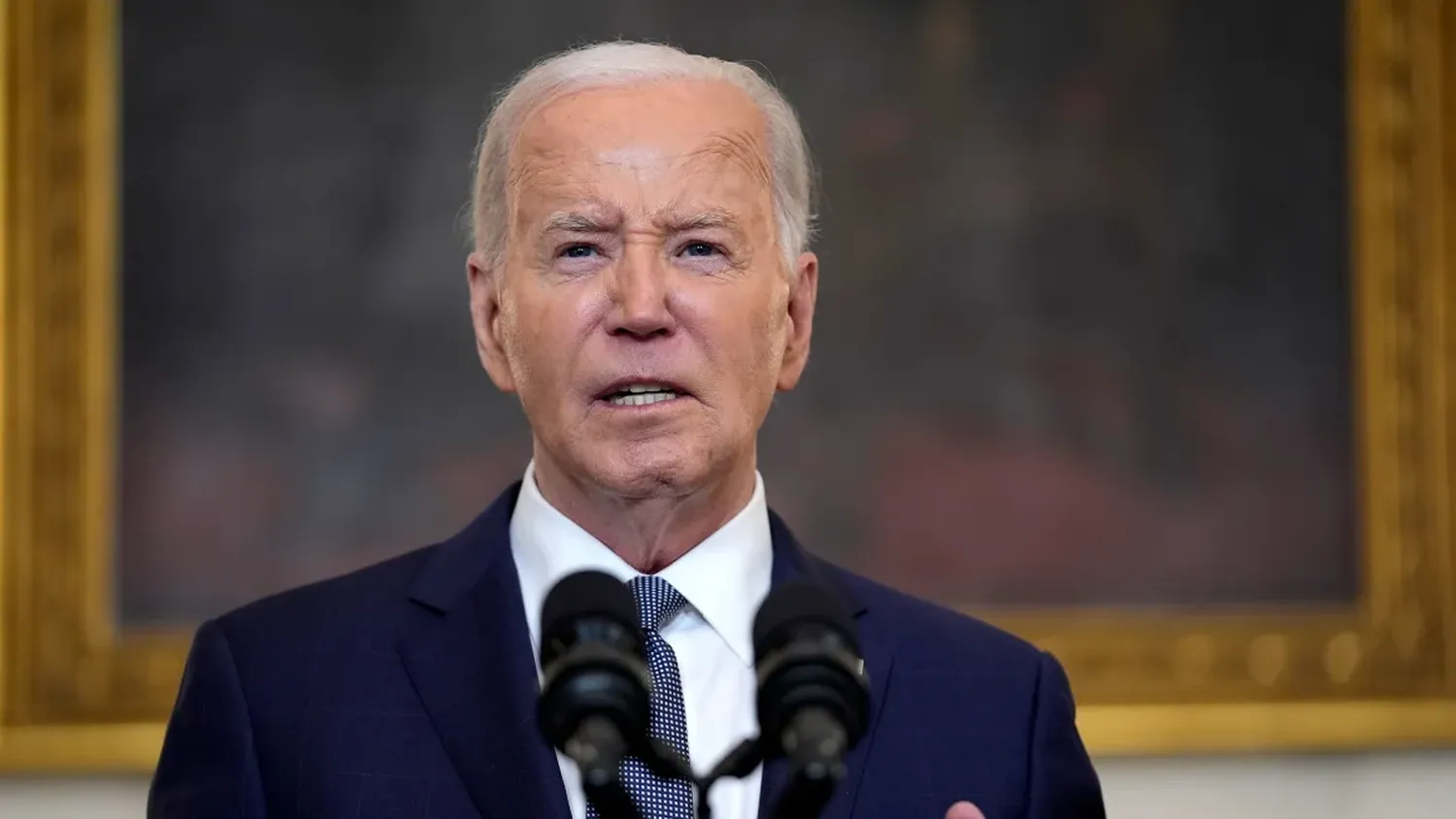Israel-Gaza War
Biden Says It’s ‘Time for This War to End': New Ceasefire Proposal
The world watches closely hoping that this proposal will mark the beginning of the end of the devastating war in Gaza.
Aiming the halting the ongoing conflict in Gaza, U.S. President Joe Biden announced on Friday that Israel has put forward a comprehensive new proposal for a ceasefire. Speaking from the White House, Biden emphasized the urgency of ending the hostilities, stating, "It's past time for this war to conclude."
The proposal, which has been communicated to Hamas through Qatari intermediaries, outlines a detailed three-phase plan designed to bring about a lasting peace in the region. The first phase, set to last six weeks, calls for a complete and unwavering ceasefire, the withdrawal of Israeli Defense Forces (IDF) from all populated areas in Gaza, and the exchange of hostages for Palestinian prisoners. This phase also includes a significant increase in humanitarian aid, with an estimated 600 trucks delivering essential supplies to Gaza daily.
Biden highlighted the importance of this initial phase, noting that it would facilitate the safe and effective distribution of aid to those in need. "This juncture represents a pivotal moment," he said. "Hamas professes a desire for a ceasefire. This deal offers a chance to demonstrate their sincerity."
The second phase of the proposal involves the release of all remaining living hostages, including male soldiers, and a complete withdrawal of Israeli forces from Gaza. Negotiations to transition from the first to the second phase could take longer than six weeks, but the ceasefire would continue as long as talks were ongoing. The temporary ceasefire would evolve into a permanent cessation of hostilities, contingent on Hamas adhering to its commitments.
In the third and final phase, a major reconstruction plan for Gaza would be initiated, and the remains of any captives killed would be returned to their families. This phase aims to restore homes, schools, and hospitals in Gaza, with support from the U.S. and the international community.
Despite the comprehensive nature of the proposal, it has faced opposition from some Israeli leaders, including members of Prime Minister Benjamin Netanyahu's coalition government, who have called for the continuation of the war until all of Israel's objectives are met. Netanyahu has maintained that the war will not cease until the return of all hostages and the dismantling of Hamas' military and governing capabilities.
The conflict, which began in early October with an unprecedented assault by Hamas militants on southern Israel, has resulted in significant casualties on both sides. According to Gaza's Health Ministry, over 36,000 Palestinians have been killed since the conflict began, while the initial Hamas attack led to the deaths of approximately 1,200 Israelis and the capture of around 250 hostages.
The Israeli military's recent advancement into the southern Gaza city of Rafah has further exacerbated the humanitarian crisis, displacing over one million Palestinians and leading to severe shortages of food, water, and other essential supplies. The international community has expressed outrage over the deadly attacks on Rafah, with calls for sanctions and arms embargoes against Israel intensifying.
Biden has faced months of protests and criticism for his unwavering military and diplomatic support for Israel during the conflict. A recent poll indicated that Biden enjoys less than 20% support among Arab Americans, a crucial demographic in several U.S. swing states that could influence the upcoming election. Despite the growing anger over Israel's offensive and warnings of potential electoral consequences, Biden's stance has remained consistent.
In his remarks, Biden urged Israeli leadership to support the ceasefire deal, despite any political pressure. "We cannot squander this opportunity," he said, addressing the Israeli populace. He also acknowledged the challenges that lie ahead in the negotiations but stressed the importance of securing a lasting peace.
The proposal has been met with cautious optimism by some international observers, who see it as a potential pathway to ending the violence and addressing the humanitarian crisis in Gaza. However, the success of the plan hinges on the willingness of both Israel and Hamas to engage in meaningful negotiations and adhere to the terms of the ceasefire.
As the conflict continues to unfold, the world watches closely, hoping that this new proposal will mark the beginning of the end of the devastating war in Gaza.

